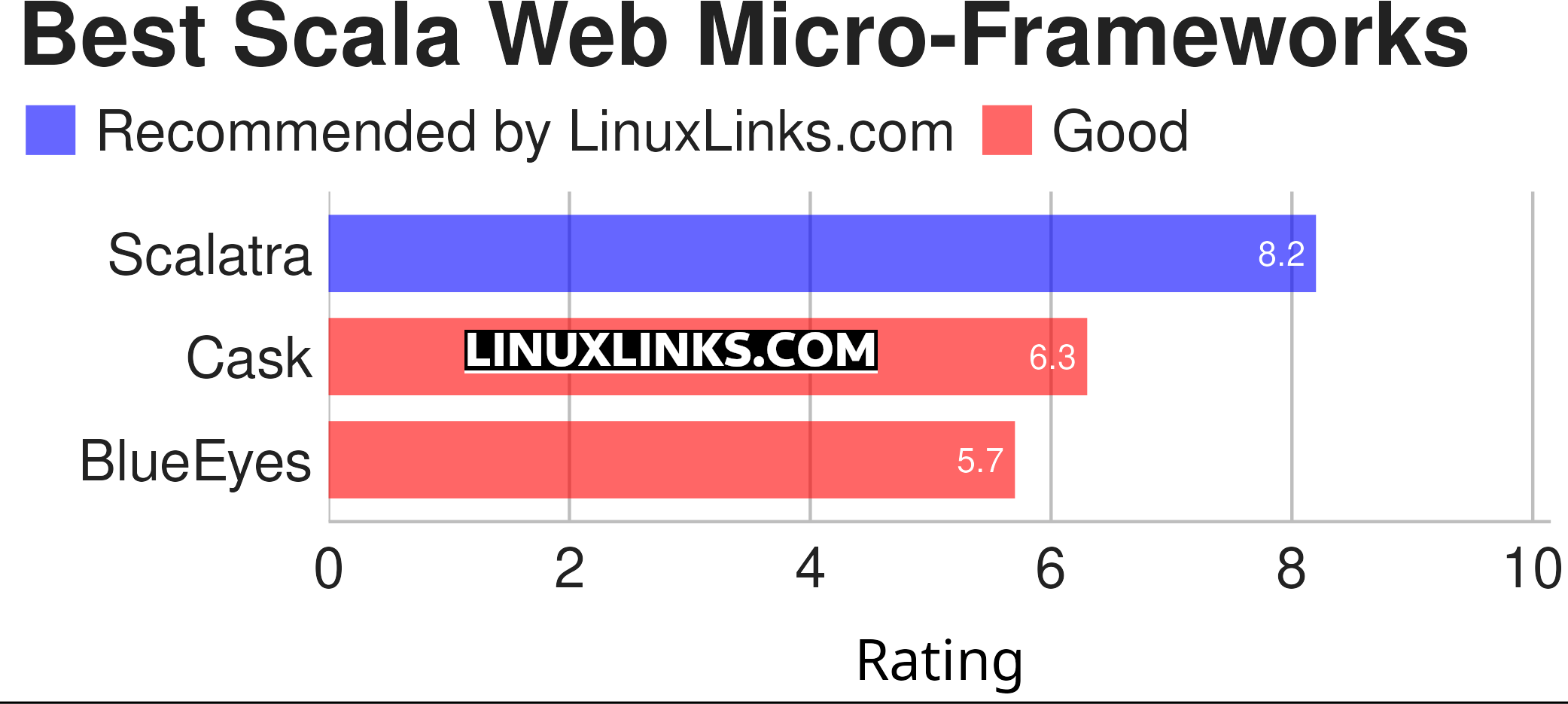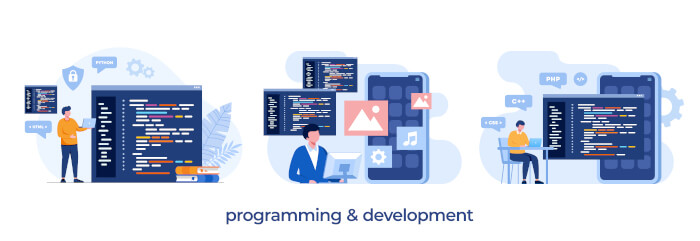One of the types of software that’s important for a web developer is the web framework. A framework “is a code library that makes a developer’s life easier when building reliable, scalable, and maintainable web applications” by providing reusable code or extensions for common operations. By saving development time, developers can concentrate on application logic rather than mundane elements.
A web framework offers the developer a choice about how to solve a specific problem. By using a framework, a developer lets the framework control portions of their application. While it’s perfectly possible to code a web application without using a framework, it’s more practical to use one.
Scala is a modern, object-functional, multi-paradigm, Java-based programming and scripting language. It blends functional and object-oriented programming models. Scala introduces several innovative language constructs. It improves on Java’s support for object-oriented programming by traits, which are stackable and cannot have constructor parameters. It also offers closures, a feature that dynamic languages like Python and Ruby have adopted.
Here’s our verdict on the best free and open source Scala web micro-frameworks.

Let’s explore the 3 Scala web micro-frameworks. For each program we have compiled its own portal page, a full description with an in-depth analysis of its features, together with links to relevant resources.
| Scala Web Micro-Frameworks | |
|---|---|
| Scalatra | Tiny, high-performance, async web framework, inspired by Sinatra |
| BlueEyes | Lightweight scalable framework for modern web services |
| Cask | Scala HTTP micro-framework |
 Read our complete collection of recommended free and open source software. Our curated compilation covers all categories of software. Read our complete collection of recommended free and open source software. Our curated compilation covers all categories of software. Spotted a useful open source Linux program not covered on our site? Please let us know by completing this form. The software collection forms part of our series of informative articles for Linux enthusiasts. There are hundreds of in-depth reviews, open source alternatives to proprietary software from large corporations like Google, Microsoft, Apple, Adobe, IBM, Cisco, Oracle, and Autodesk. There are also fun things to try, hardware, free programming books and tutorials, and much more. |
